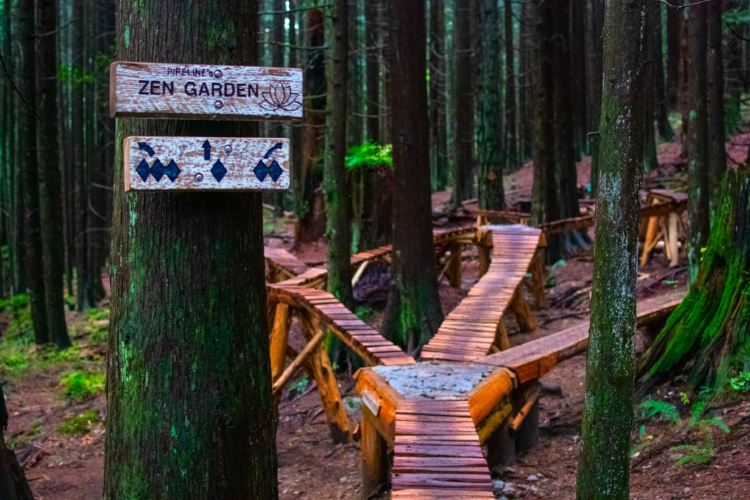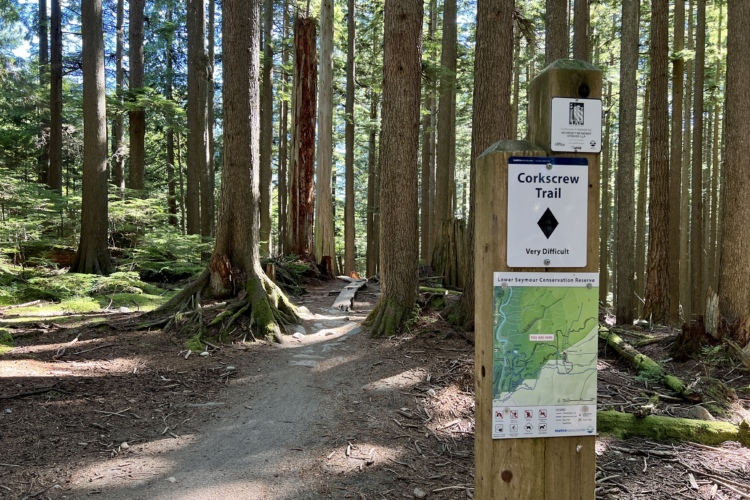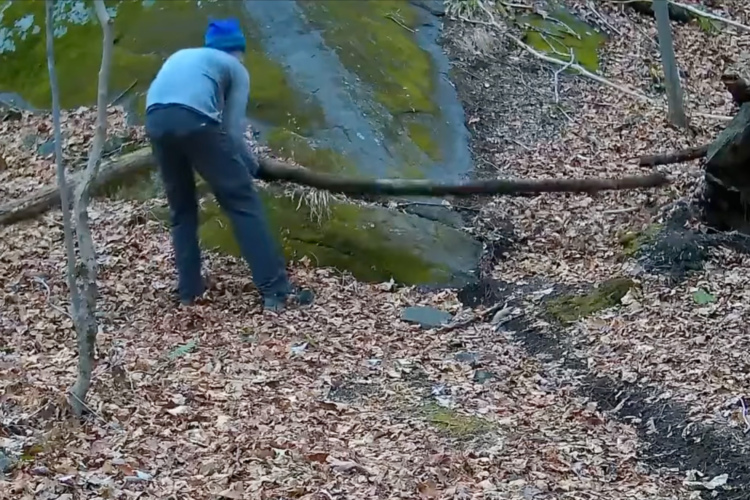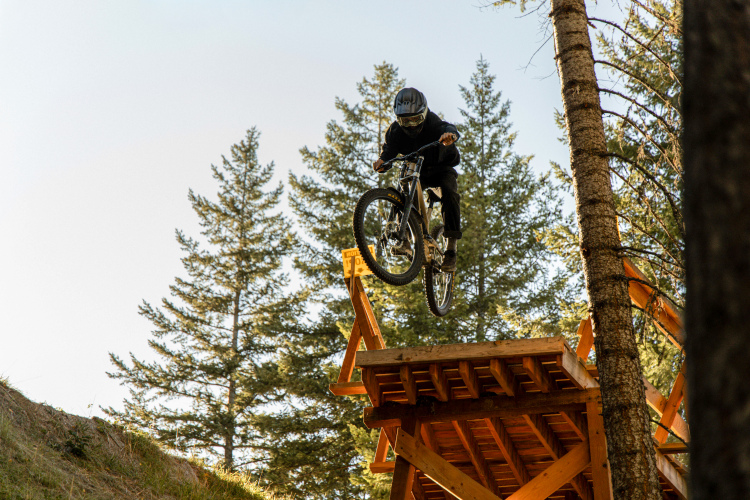
Vancouver’s North Shore is the birthplace of freeride mountain biking — a movement that was largely responsible for creating the sport of mountain biking as we know it today. Historically, freeriding began on rogue trails built deep in the forest on the North Shore. But since those early days, mountain biking has grown up, and many trails across the region have been sanctioned and added to the legal trail system. Old trails have been rebuilt and improved, and new trails have been added as well.
However, illegal trail building still continues in the region, and it appears that tensions over rogue trail building have reached a boiling point.
Booby traps placed in retaliation for illegal trail building
On January 13th, Deanne Cote, Executive Director for the North Shore Mountain Bike Association (NSMBA), published an open letter acknowledging that tensions in the forest have escalated to a dangerous level. “Recent events on our trails have highlighted a troubling conflict between rogue trail building and sanctioned land management,” wrote Cote. “In November, tensions spilled over onto Corkscrew, a busy authorized trail, when someone scattered piles of debris across the path, including rusted nails jutting out of old wood. These dangerous actions put trail users at risk and placed an unfair burden on volunteers who had no role in this conflict.”
Trail booby traps — or, as it’s more accurately called, trail terrorism — aren’t new on the North Shore, but it’s been years since the last confirmed report of such actions. In her letter, Cote connected the latest case of trail terrorism to ongoing conflicts over rogue trail building. She doesn’t expressly outline the one-to-one connection in her letter but reiterated the connection in an article on North Shore News, saying, “They actually went out and sabotaged one of the authorized trails within the network in retaliation.”
An increase in illegal trail building is plaguing the North Shore
Cote spent most of her letter addressing the rogue trail building that has taken place, saying that there’s immense pressure on the trail system due to the increasing popularity of the sport, but that new trails have been slow to be approved. While that’s no excuse for illegal activity, rogue building has exploded in recent years.
“We’re probably into 10, 15, 20 kilometers of unsanctioned trails,” said Heidi Walsh, Director of Watershed and Environmental Management for Metro Vancouver in an article on North Shore News. “[They’re] paralleling existing sanctioned trails that we’ve recently spent lots of money upgrading. They kind of spaghetti their way down the mountainside in multiple different directions.… We get to the point where it’s starting to get a little out of hand. The environmental damage starts to get quite dramatic and then we have to take some action and go in and shut down some of these unsanctioned trails.”
A trail called “New Normal” is currently in the process of being decommissioned. While Cote said that NSMBA tried to get New Normal adopted as a sanctioned trail similar to the recent legalization of Cambodia, that moving forward, Metro Vancouver is only going to sanction trails that have been approved prior to construction. According to the letter, Metro Vancouver will proceed to shut down “New Normal, Iceland, Suicide Jimmy, Jankritaville, Orleans, and the CBC loamers.”
Delays in new trail approval by Metro Vancouver are partially to blame
In a follow-up editorial published by the North Shore News, the publication’s staff laid a large part of the blame for this conflict at the feet of Metro Vancouver. While first saying that “Those who are building the environmentally damaging trails need to read the room here and knock it off,” they continued by writing:
“Metro Vancouver needs to show a greater sense of urgency in allowing new trails. It is yet another reminder that the speed of bureaucracy is too slow for most people in the real world, and far too slow for people who seek thrills in downhill mountain biking. The less flexible Metro Vancouver is, the less control they have, the more damage that gets done.”
As no new mountain bike trails have been built in recent years, local mountain bikers have been outspoken online and in interviews about the need for new trails to spread out the trail traffic and provide a more aggressive riding style than what’s available in the sanctioned trail system. However, the construction of rogue trails may end up having the opposite effect that local riders want by slowing down new trail approval even further.
“The time, effort, and money spent decommissioning the area’s unsanctioned trails is also hindering our efforts to advance the sanctioning or addition of any new trails,” Cote wrote. “The actions of the unsanctioned builders are minimizing the impact of the positive work we’re doing and painting the picture to the broader community that mountain bikers could care less about our impacts on the surrounding environment.”
Update January 27, 2025: “‘We’re sorry.’ NSMBA Board issues statement about communication of rogue trail decommissioning“











7 Comments
Jan 24, 2025
Jan 27, 2025
Jan 23, 2025
Jan 24, 2025
The governing bodies can take 5 years to approve at trail. That effectively bans legal new construction. Build, baby build.
Jan 27, 2025
Jan 23, 2025
Jan 24, 2025